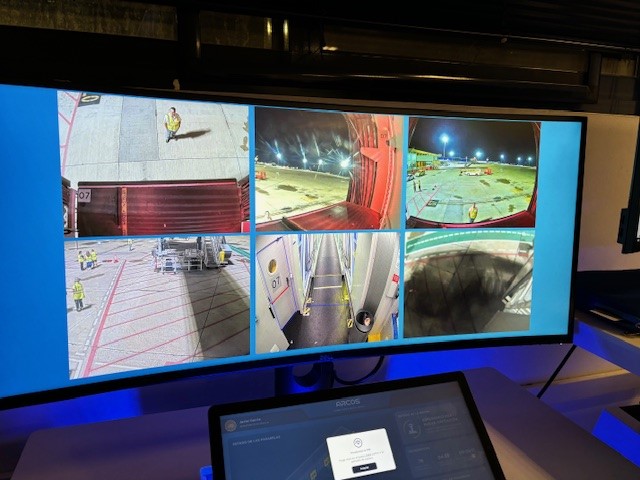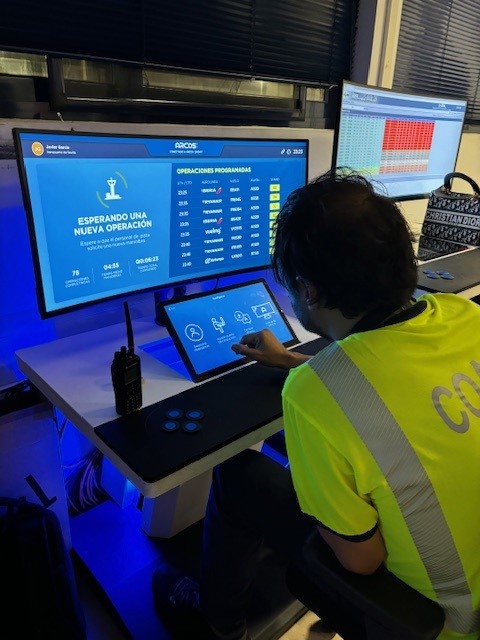Sevilla Airport modernizes with remote-controlled passenger boarding bridges
Sevilla Airport has integrated a remote driving system for its passenger boarding bridges, optimizing turnaround efficiency and placing it at the forefront of European technological advances.
Sevilla Airport (SVQ) has implemented a system to operate its passenger boarding bridges remotely, a development aimed at making apron operations more agile and flexible. According to Aena, the Spanish airport operator, this terminal becomes the second in its network, following Adolfo Suárez Madrid-Barajas Airport (MAD), to adopt this technology, positioning it among the sector's pioneers in Europe.
The operation, which until early July was performed manually using a console at the end of each bridge, is now managed from a centralized control desk. This station, manned by Apron and Platform Service (SPP) personnel, is equipped to control all of the airport's boarding bridges.
Thanks to a network of installed cameras and sensors at various angles on the bridges, the technician has a complete view of both the aircraft and the parking stand, allowing them to dock and undock the finger with the same precision and safety as the on-site method.

What is a remote-controlled passenger boarding bridge?
It is a system that allows an operator to connect and disconnect a finger (boarding bridge) from an aircraft from a central control room, without needing to be physically present at the bridge. It uses high-definition cameras and sensors to guide the maneuver, improving agility and enabling a single technician to manage multiple gates, thereby optimizing aircraft turnaround times.
To enhance safety and coordination with flight crews, the system is complemented by a traffic light signal. This indicates to the cabin crew the exact moment it is safe to open the aircraft doors for deplaning or, once boarding is complete, to close them and begin taxiing. The light remains red while the bridge is in motion and turns green upon secure completion of the connection.

The primary benefit of this procedure is the increase in efficiency during airline turnarounds. Centralized management eliminates the need for technicians to physically move between different boarding gates, allowing for a quicker response and more dynamic resource allocation.
A Project with History and a Future
The implementation of this technology is the result of a project that began years ago. The first pilot tests at Sevilla Airport date back to early 2021, a globally pioneering experience at the time that served to validate the system's functionality. The positive results laid the groundwork for its definitive adoption.
Subsequently, between 2021 and 2022, Aena invested over five million euros to replace the old bridges with six new-generation units developed by the technology company Adelte. These new structures, in addition to enabling remote driving, are prepared for the project's next phase: 100% autonomous operation, a capability that is already under development.
This modernization aligns with a global trend in aviation, with other European airports like Munich Airport (MUC) also conducting trials with similar technologies. The collaboration between Aena, the airlines operating in Seville, their handling agents, and the developer Adelte has been crucial for the successful launch of the system.

/https://aviacionlinecdn.eleco.com.ar/media/2021/07/espana-vueling-sevilla.jpg)
Para comentar, debés estar registradoPor favor, iniciá sesión